Cloud Phone Systems for small businesses, also known as a hosted phone system or an internet phone system, is an IP phone system that connects phone extensions within a business, to internet based IP Trunks, allowing employees to make and receive calls internally and externally. Rather than being installed on-premises, a cloud phone system is a telephone system that is managed and maintained by a provider within a remote data center like AWS.
There are several advantages to using a cloud phone system over an on-premises PBX system:
Redundancy
Cloud phone systems are typically built on highly redundant infrastructure, with multiple servers and connections to ensure that the system remains operational even if one component fails. This can increase reliability compared to on-premises PBX systems, which may be more vulnerable to outages or other issues if they rely on a single connection or server. Having a reliable phone system is critical for businesses, as an outage or other issue can disrupt communication with customers and partners, leading to lost productivity and potential revenue. By choosing a cloud phone system with redundant infrastructure, you can reduce the risk of outages and other disruptions.
Maintenance
Cloud phone systems are managed and maintained by the provider, which means that the provider is responsible for ensuring that the system is up-to-date and functioning properly. This can save your business the time and resources required to maintain and update an on-premises PBX system in-house. Maintaining a PBX system can be a complex and time-consuming process, requiring specialized knowledge and equipment. By outsourcing this responsibility to a provider, you can free up your IT team to focus on other tasks, and ensure that your phone system is always up-to-date and functioning properly. Additionally, the provider may be able to resolve issues more quickly and efficiently, as they have the expertise and resources to do so. Overall, choosing a cloud phone system can help reduce the burden of maintenance and support on your business, and ensure that your phone system is always operational.
Flexibility
Hosted phone systems can be accessed from anywhere with an internet connection, which means that employees can work from anywhere and stay connected with colleagues, customers, and partners. This can increase flexibility and productivity, and may make the system more reliable overall. Flexibility is an important consideration for businesses, as it can allow employees to work from anywhere, whether it be from the office, at home, or on the go. With an on-premises PBX system, employees may be limited to using the phone system from a specific location or set of locations. With a cloud phone system, employees can access the phone system from any device with an internet connection, which can help them stay connected and productive regardless of their location. This can be especially useful for businesses with remote employees or those that need to adapt to changing work environments.
Scalability
Business IP Phone systems can easily scale up or down to meet the changing needs of your business, without the need to purchase additional hardware or infrastructure. This can help ensure that the system is always adequately sized to meet your business’s needs. Scalability is an important consideration for businesses, as you may need to add or remove phone lines as your business grows or changes. With an on-premises PBX system, this can involve purchasing and installing additional hardware, which can be expensive and time-consuming. With a cloud phone system, you can simply adjust your subscription or add-on features as needed, making it easier to scale up or down as needed.
Cost
Cloud based business phone systems may be more cost-effective overall compared to on-premises PBX systems, as they typically require lower upfront costs and may have lower ongoing maintenance and support costs. The upfront costs of an on-premises PBX system can be significant, as you need to purchase the hardware and infrastructure, as well as hire a team to install and maintain it. With a cloud phone system, you can pay a monthly subscription fee or pay-per-use fee, which can be more predictable and easier to budget for. Additionally, the provider handles the maintenance and updates to the system, which can save your business the time and resources required to handle these tasks in-house. By choosing a cloud phone system, you can potentially reduce your overall phone system costs and improve your budget predictability.
Integration
IP phone systems can often be integrated with other tools and systems, such as customer relationship management (CRM) software, project management tools, and office productivity suites like Microsoft Office or Google Workspace. This can help streamline processes and increase efficiency. Integration is an important consideration for businesses, as it can help improve productivity and efficiency by allowing employees to access and use multiple tools and systems from a single interface. With an on-premises PBX system, it may be more difficult to integrate with other tools and systems, as you may need to purchase and install additional hardware or software. With a cloud phone system, integration can often be done through APIs or other integration tools, making it easier to connect with other systems and streamline processes.
Despite these advantages, there are also some potential drawbacks to using a cloud phone system:
Reliability
The end point (phone or app) that you use to connect to your Hosted IP phone system with a physical, wireless, cellular, or satellite-based data connection, needs to be a stable and reliable internet connection. If your internet connection is disrupted, your phone system may also be affected. This can be a problem if you rely on the phone system for critical business communication. Some Cloud PBX’s run on a local carrier’s own internet connection and do not have the ability to fail over to other internet options. If you are considering a cloud phone system, it is important to ensure that you have a stable and reliable internet connection, as well as a backup plan in case of outages or other issues.
Quality of service (QOS)
Cloud phone system calls may not always be as clear as traditional phone calls, especially if the internet connection is not strong or experiencing issues. This can be due to factors such as latency, jitter, and packet loss, which can affect the quality of the call. Quality of service is an important consideration when choosing a phone system, as poor call quality can lead to misunderstandings and frustration. To ensure high-quality calls, it is important to ensure that you have a strong and stable internet connection, as well as a provider that uses technologies such as Voice over Internet Protocol (VoIP) to improve call quality.
Security
Cloud phone systems can be vulnerable to security threats like hacking and eavesdropping, which can compromise the confidentiality of calls and potentially expose sensitive information. Ensuring the security of your phone system is important to protect your business and its reputation. When choosing a cloud phone system, it’s important to make sure the provider has strong security measures in place, like SSL and TLS encryption. SSL (Secure Sockets Layer) and TLS (Transport Layer Security) are protocols that provide secure communication over networks by encrypting data transmitted between devices. These protocols are commonly used to secure internet communications, including phone calls made over the internet. In addition to SSL and TLS encryption, it’s also important to ensure that the provider has other security measures in place, like firewalls and authentication. It’s also important to ensure that the provider follows best practices for securing data and communications, like storing data in secure servers and regularly updating security protocols.
Lack of control
With a cloud phone system, you are reliant on the provider for maintenance and support, which can be a drawback if you prefer to have more control over your phone system. Lack of control can be a concern for businesses that prefer to have more control over their phone system, as you are reliant on the provider to maintain and update the system. If you are considering a cloud phone system, it is important to ensure that the provider is responsive and reliable, and that you have the support and resources you need to ensure that the system is functioning properly. Additionally, it is important to consider whether you have the internal resources and expertise to manage and maintain an on-premises PBX system in-house, as this may be a more suitable option for some businesses.
Integration
Depending on the provider and the system, it may be more difficult to integrate a cloud phone system with certain tools and systems compared to an on-premises PBX system. Integration is an important consideration when choosing a phone system, as it can help streamline processes and increase efficiency by allowing employees to access and use multiple tools and systems from a single interface. If you are considering a cloud phone system, it is important to ensure that the system is compatible with the tools and systems you use, and that you have the resources and support you need to integrate the system effectively. This may involve using API’s or other integration tools, or working with the provider to customize the system to meet your integration needs. It is also important to consider whether an on-premises PBX system may be more suitable for your integration needs, as these systems may offer more flexibility and customization options.
Overall, whether a cloud phone system or an on-premises PBX system is the better choice for your business will depend on your specific needs and budget.

